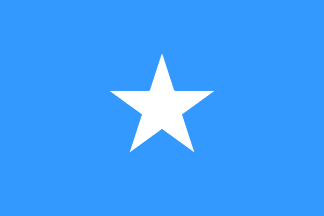Somali leader arrives in capital
Somalia's interim President Abdullahi Yusuf has arrived in the capital, Mogadishu, amid tight security.
He flew in on his first visit since Islamists fled advancing Ethiopian forces and interim government soldiers.
 President Yusuf |
Gunmen fired at Ethiopian forces in Mogadishu overnight, after two died in anti-Ethiopian protests on Saturday.
It is unclear if the violence is linked to the Islamists, who threatened an Iraq-style insurgency. Some Islamist leaders are in Yemen calling for talks.
Somalia's president and the prime minister, Mohammed Ali Ghedi, are at the former presidential palace in southern Mogadishu, Villa Somalia, for discussions with clan elders about the faltering disarmament process.
The capital awash with guns, and since being elected Somalia's interim president in 2004, Mr Yusuf has always said it was too dangerous for him to set up a government in Mogadishu.
Meanwhile, diplomats are discussing an African peacekeeping force, with Ethiopians keen to pull their troops out within weeks.
Many Islamist fighters are in hiding, though fighting is still being reported involving Ethiopian forces near the Kenyan border at Ras Kamboni.
Somalia's defence minister said government troops were poised to enter one of the Islamist's last strongholds, after a two-day battle.
Talks
Yemeni Foreign Minister Abu Bakar al-Qurabi says that several ousted leaders of the Union of Islamic Courts managed to escape to Yemen - though the whereabouts of the UIC's main leaders remains unclear.
UIC spokesman Ibrahim Hassan Adow said from Yemen that they were "determined to find solutions".
US Assistant Secretary of State Jendayi Frazer concluded her tour of Somalia's neighbours, calling on all Somalis to take part in the peace process - a comment taken to include moderate Islamists.
"We've made clear that we see a role in a future Somalia for all who renounce violence and extremism," she said.
Speaker of the transitional parliament, Sharif Hassan Sheikh Adan, has said he will try to persuade UIC leaders to join a national reconciliation process.
However, other Somali leaders are unconvinced and President Yusuf rejuected talks with Islamist leaders before his arrival in Mogadishu.
They say the transitional government, incorporating all the main clan factions - is already inclusive enough and they say the UIC is now irrelevant and defunct.
Violence
On Saturday, security forces fired in the air to disperse crowds, as youths burnt tyres and threw stones, witnesses said.
At least two civilians were killed and several others injured by gunfire, but it was not clear who was responsible.
Another protest was held in the town of Beledweyne, near the border with Ethiopia, with one death reported.
The protests came as the government indefinitely postponed a forcible disarmament programme in the capital.
The African Union's peace and security council meet shortly, to discuss a peacekeeping force, agreed by the UN Security Council before the current hostilities.
The US has agreed to provide $10m (£5.2m) towards the funding of the 8,000-strong peacekeeping force - part of $40m pledged to support Somalia's efforts to restore stability.
Ethiopia's Prime Minister, Meles Zenawi, has said he wants his forces out of the country in a matter of weeks.
Kenya's government has shut its border with Somalia, despite criticism from the United Nations' refugee agency.
In addition, a deadline given to a group of Somali MPs who have been staying in Kenya to leave the country expires on Monday.
The 20 MPs are opposed to the presence of Ethiopian forces in Somalia.

http://news.bbc.co.uk/2/hi/africa/6240269.stm




No comments:
Post a Comment